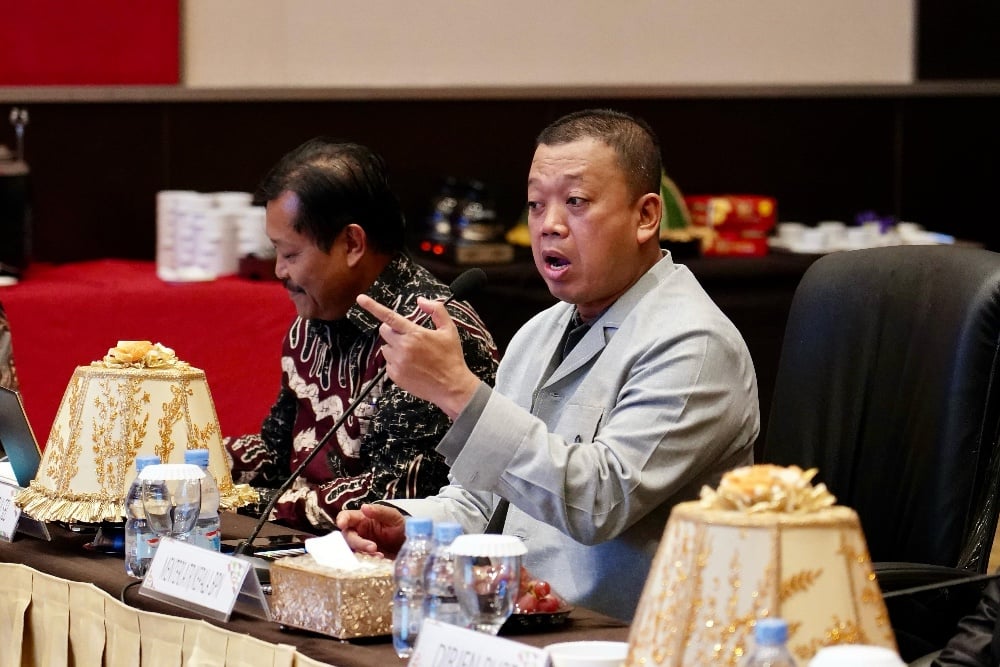Bali officials and national ministries have responded swiftly to recent foreign ownership claims involving small islets in Bali, following reports that foreign nationals may have taken control of these areas.
In early July 2025, Agrarian Minister Nusron Wahid raised concerns that several small islands in Bali and nearby West Nusa Tenggara were allegedly under foreign ownership. He announced that his ministry would launch an investigation into the matter.
Bali Governor Wayan Koster immediately refuted the claims. At a press conference on July 2, he firmly stated that “there is no foreign control” over any islands in Bali. According to Koster, what’s happening is that foreign investors are building hotels, villas, or restaurants — all with proper permits.
He added that the local government has conducted inspections, including issuing two warning notices at a development site in Bingin Beach. Koster also promised to work closely with the Ministry of Agrarian Affairs and Spatial Planning, also known as ATR/BPN. He said he would coordinate with the Tourism Ministry as well. The goal is to resolve any misunderstandings regarding land ownership and development.
Government Investigations into Foreign Ownership Claims
By mid-July, both the Ministry of Agrarian Affairs and the Ministry of Maritime Affairs confirmed they were actively reviewing Minister Nusron Wahid’s claims. The National Land Agency (ATR/BPN) sent a team to investigate the ownership records of the small islets in question.
Minister Nusron reiterated that Indonesian law strictly prohibits foreign ownership of islands, and his staff has been examining the legal basis of any land transfers. So far, the investigation has found no irregularities.
On July 7, the head of Bali’s BPN office, I Made Daging, told the press that their audit uncovered “none, absolutely none” of Bali’s islands under foreign ownership. After reviewing all known small islands, including Nusa Penida, Nusa Lembongan, Nusa Ceningan, Menjangan, and Serangan. He confirmed that no single foreign entity owns more than 30% of any island.
Daging said that foreigners only use long-term leaseholds, known as hak pakai, to build villas or resorts. Indonesian law allows this type of arrangement.
The Ministry of Maritime Affairs and Fisheries, or KKP, has also pledged to take firm action. During a parliamentary hearing on July 7, Minister Sakti Wahyu Trenggono addressed the issue of foreign involvement in small islands. He confirmed that his ministry is aware of the concerns. He also stated that they would thoroughly investigate the situation in both Bali and West Nusa Tenggara.
Trenggono explained that the KKP now has direct authority over small outer islands. This responsibility was previously handled by regional governments. He confirmed that KKP teams are already surveying coastal and island developments. Any construction found without proper permits will be sealed off. If it is located in a protected zone, it may be demolished.
As part of the government’s tighter control, the KKP is now certifying remote islets as state property. This ensures that any private use must follow formal cooperation agreements with the government rather than involve direct ownership.
Both the Maritime and Land ministries emphasized that Indonesian law prohibits the sale of islands to foreigners and stated that they will enforce this rule if any violations are found.
Legislative and Public Reaction to Foreign Ownership Claims
The controversy also drew attention in the legislature. Bali’s DPR deputies on July 2 announced plans to summon Minister Nusron for clarification. “We may call him to explain these tourism-related matters,” said Commision VII deputy Evita Nursanty. In Bali, former parliament speaker Nyoman Parta publicly urged Nusron to disclose any data on the alleged island sales. Parta warned that if an island really had been sold to foreigners, it would be a “mistake by the central and regional governments”, and stressed that foreign investment permits (PMA) allow development but not ownership.
Locally, the episode stirred considerable debate. BPN officials noted that the minister’s remark had “caused confusion” among residents. Even Governor Koster and local councils contacted Daging’s office asking for verification. Social media and expat forums likewise buzzed with speculation. In response Bali’s authorities and news outlets have largely echoed Koster’s line: no foreigner owns a Balinese island outright. A July 7 Antara report summed up: “no island in Bali is fully owned by foreign nationals” aside from usage rights or investment stakes. Officials are reminding the public that Indonesian law capping private ownership at 70% of an island (and outright banning full titles) remains in force.
Sources: jakartadaily.id, finance.detik.com, detik.com, antaranews.com.
Featured Image via ekonomibisnis.com

